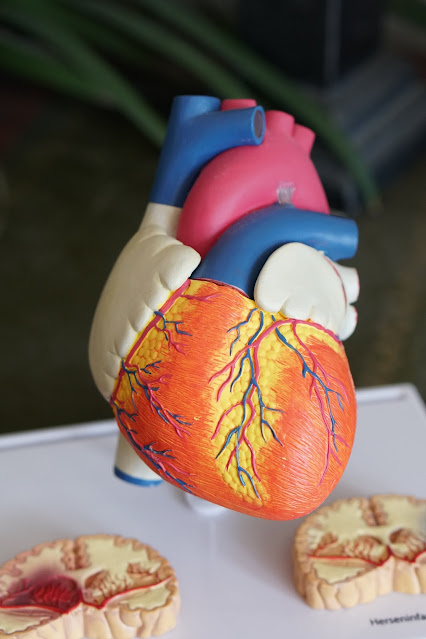- Get link
- X
- Other Apps
- Get link
- X
- Other Apps
Heart disease is a serious medical condition that affects millions of people worldwide. It is the leading cause of death in the United States, with heart attacks being a common occurrence among those who suffer from the disease. If you or a loved one has been diagnosed with heart disease or is at risk of developing it, it's important to understand the condition, its symptoms, and how to prevent and manage it.
In this comprehensive guide, we will provide you with all the information you need to know about heart disease and heart attacks, including their causes, symptoms, diagnosis, treatment options, and prevention measures.
Understanding Heart Disease
Heart disease is a term used to describe a range of conditions that affect the heart. The most common type of heart disease is coronary artery disease (CAD), which occurs when the arteries that supply blood to the heart become narrowed or blocked. This can lead to a heart attack, which occurs when the blood supply to the heart is cut off, causing damage to the heart muscle.
Other types of heart disease include heart failure, arrhythmia, and valve disease. Heart failure occurs when the heart is unable to pump enough blood to meet the body's needs, while arrhythmia refers to an irregular heartbeat. Valve disease occurs when the valves in the heart don't work properly, which can lead to blood flow problems.
Symptoms of Heart Disease
The symptoms of heart disease can vary depending on the type of condition you have. However, some common symptoms to look out for include chest pain, shortness of breath, fatigue, dizziness, and swelling in the legs or abdomen. It's important to note that some people may not experience any symptoms, so regular check-ups with your healthcare provider are crucial in detecting and managing heart disease.
Diagnosis of Heart Disease
If you are experiencing any of the symptoms of heart disease, your healthcare provider will likely conduct a physical exam and take your medical history. They may also perform diagnostic tests such as an electrocardiogram (ECG), echocardiogram, stress test, or coronary angiography to assess your heart's function and diagnose any potential problems.
Treatment Options for Heart Disease
The treatment options for heart disease will depend on the type and severity of the condition. In many cases, lifestyle changes such as a healthy diet, regular exercise, and quitting smoking can help manage and prevent heart disease. Medications such as blood thinners, cholesterol-lowering drugs, and beta-blockers may also be prescribed to reduce the risk of heart attack and other complications.
In more severe cases, surgical procedures such as angioplasty, stenting, or bypass surgery may be necessary to improve blood flow to the heart. Your healthcare provider will work with you to determine the best treatment plan for your specific needs.
Prevention Measures for Heart Disease
Preventing heart disease involves making healthy lifestyle choices such as eating a balanced diet, staying active, managing stress, and avoiding tobacco and excessive alcohol consumption. Regular check-ups with your healthcare provider can also help detect any potential problems early on, allowing for prompt treatment and management.
In addition, knowing your risk factors for heart disease, such as age, family history, high blood pressure, and high cholesterol, can help you take preventative measures and reduce your risk of developing the condition.
Conclusion
Heart disease is a serious medical condition that requires proper diagnosis, management, and prevention measures. By understanding the causes, symptoms, and treatment options of heart disease and heart attacks, you can take the necessary steps to maintain good heart health and reduce your risk of complications. If you are experiencing any symptoms of heart disease or have any concerns about your heart health, make an appointment with your healthcare provider today.

- Get link
- X
- Other Apps

Comments
Post a Comment